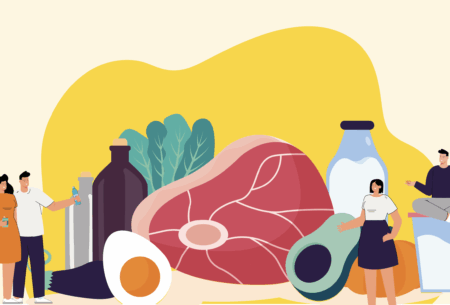Did you know one-third of diarrhoea-predominant IBS cases could actually be caused by bile acid malabsorption (BAM)?
Understand & treat: Bile Acid Malabsorption

What is Bile Acid Malabsorption?
Bile contains bile acids, compounds used to help breakdown fat and absorb nutrients during digestion, and which also help the body get rid of waste products.
These bile acids are made in the liver and stored in the gallbladder. After eating, they are released into your small intestine, where most of the nutrients from food are absorbed. Usually 95-97% of bile salts are then re-absorbed at the end of your small intestine and are returned to the liver. This recycling process feeds back to the body and lets it know that it doesn’t need to release any more bile acids.
If this cycle is disrupted, bile acids will enter the large intestine. This irritates the lining of the large intestine, causing it to release more water and speeds up the time it takes for waste to travel through the large intestine. These changes can cause symptoms, including:
- Diarrhoea: loose stools may look greasy and pale or yellow/green/orange and be hard to flush away.
- Gastrointestinal symptoms: bloating, cramping and wind (many of the symptoms which are also seen in IBS).
What causes BAM?
Bile acid malabsorption (or bile acid diarrhoea) affects around 1 in 100 people in the UK.
BAM can be caused by intestinal surgery or direct damage to the end part of your small intestine (e.g. in a Crohn’s flare up). Sometimes it may be secondary to gallbladder removal, chronic pancreatitis or other health conditions. It could also be idiopathic (cause unknown).
What treatments are available for BAM?
Medications that bind the excess bile acids are usually prescribed by a gastroenterologist after a positive diagnostic test, called a SeHCAT scan. These medications are called bile acid sequestrants and come in tablet or powder form.
Some people may benefit from a lower fat diet; however, this is on an individual basis and should always be implemented under the guidance of a specialist dietitian. As bile acid sequestrants can sometimes be linked to lower levels of fat soluble vitamins, such as vitamin A, D, E and K, regular blood tests may be necessary. Working with a dietitian will ensure you are having a nutritionally balanced diet, whilst navigating any consequences of BAM, such as weight loss.
Depending on the cause of BAM, some people may stay on medications or dietary changes long-term, and for others it might just be temporary.
Takeaway
If you notice any of the following, seek the support of a gut specialist dietitian and/or gastroenterologist for further advice:
- Struggling with diarrhoea and IBS symptoms despite dietary modifications.
- Finding that high fat foods make symptoms worse.
- Noticing stools look pale and oily, especially if bowel habits changed after gallbladder surgery.
BAM can have a big impact on your quality of life and day-to-day activities, but can be well managed with a careful, personalised diet and medical interventions.
This article was authored by Dr Emily Porter (PhD), a gut & chronic conditions specialist dietitian. Do you need support with a symptom, condition or goal? You can book an appointment with Dr Emily Porter or any member of our specialist team here.
Related articles

By Eloise Garbutt
PCOS, nutrition and gut health: how your diet can support hormones, insulin and the microbiome

By The Gut Health Doctor Team
Why your burping and wind spike over the festive season (and what actually helps)

By The Gut Health Doctor Team








